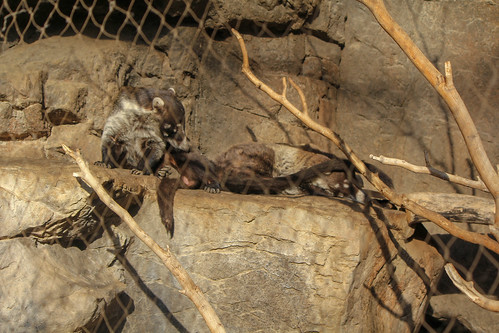Ational patterns involving cancers, identifying essentially the most relevant cancer genes driving
Ational patterns among cancers, identifying essentially the most relevant cancer genes driving the tumorigenesis of particular cancer varieties, and elucidating etiological connections among distinct mutagens and tumor evolution. The increasingly integrative COSMIC database, which incorporates considerable mutation records of clinical samples inside the proteincoding genes, delivers a exceptional opportunity for such complete analysis. By analyzing more than a single million missense mutations (involving 8000 genomewide screened samples across 23 big human cancers), we detected significant cancerspecific heterogeneity in many elements, like the prevalence of point mutations, frequently mutated genes and mutational landscapes in the amino acid level, and combinatorial mutational patterns of connected gene pairs. In comparison with prior research contemplating only nucleotide modifications, our extensive investigation of amino acid substitutions and related cancer genes revealed additional considerable cancerspecific heterogeneity, and therefore allowed a lot of novel insights into molecular mechanisms of tumor progression of unique cancer sorts. Our mutation prevalence analysis revealed that solid tumors (specifically selfrenewing tissues which include colon and lung cancers) normally possess much more mutations and more mutated genes than nonsolid tumors (e.g haematopoietic and lymphoid tissue cancers). For example, an typical colon tumor has 50 missense (a variety of nonsynonymous) mutations in proteincoding genes, although a hematopoietic or soft tissue cancer typically contains significantly less than ten. A single feasible Naringoside web explanation is that liquid tumors usually do not require the additional mutations which allow them to metastasize, a important characteristic of malignant tumors. Having said that, skin cancers bear a median of only six missense mutations detected in the current COSMIC, much less than other common strong tumors (Fig. ). A quarter of your skin cancer samples sustain greater than 25 mutations; but over 25 of samples have only one or two mutations. The reason for this marked distinction is unknown. Mutational frequency could differ extensively in between distinctive subtypes of skin cancer, which needs further investigation. A further concern is the little sample size for some cancer  kinds (e.g. adrenal gland, eye, and compact intestine cancers), for which you will find only 20 40 genomewide screened samples within the present COSMIC database. A much more integrative database containing adequate cancerspecific mutations is crucial for an unbiased analysis. Cancer is extensively considered as an ageassociated illness it requires time to accumulate the vital somatic mutations that progressively change a selected clone from benign to malignant tumor6. This trend could also be detected through mutation occurrences across diagnosis age. Some cancers displayed powerful correlation between patient age at diagnosis and mutation occurrences, e.g esophageal, prostate, and stomach cancers. Older individuals with these cancers often accumulate a lot more somatic mutations. Other cancers exemplified no apparent agemutation association, as a consequence of numerous achievable factors. Within the current COSMIC release, there have been no mutation records of individuals aged 25 years or younger for selfrenewing cancers for example colon and lung cancers; whereas, considerable numbers of patients under 25 years old have been incorporated in samples of other distinct cancers, like hematopoieticlymphoid tissue and central nervous system tumors. Nevertheless, this trend may not hold with much more information coming into PubMed ID:https://www.ncbi.nlm.nih.gov/pubmed/25303458 the da.
kinds (e.g. adrenal gland, eye, and compact intestine cancers), for which you will find only 20 40 genomewide screened samples within the present COSMIC database. A much more integrative database containing adequate cancerspecific mutations is crucial for an unbiased analysis. Cancer is extensively considered as an ageassociated illness it requires time to accumulate the vital somatic mutations that progressively change a selected clone from benign to malignant tumor6. This trend could also be detected through mutation occurrences across diagnosis age. Some cancers displayed powerful correlation between patient age at diagnosis and mutation occurrences, e.g esophageal, prostate, and stomach cancers. Older individuals with these cancers often accumulate a lot more somatic mutations. Other cancers exemplified no apparent agemutation association, as a consequence of numerous achievable factors. Within the current COSMIC release, there have been no mutation records of individuals aged 25 years or younger for selfrenewing cancers for example colon and lung cancers; whereas, considerable numbers of patients under 25 years old have been incorporated in samples of other distinct cancers, like hematopoieticlymphoid tissue and central nervous system tumors. Nevertheless, this trend may not hold with much more information coming into PubMed ID:https://www.ncbi.nlm.nih.gov/pubmed/25303458 the da.
